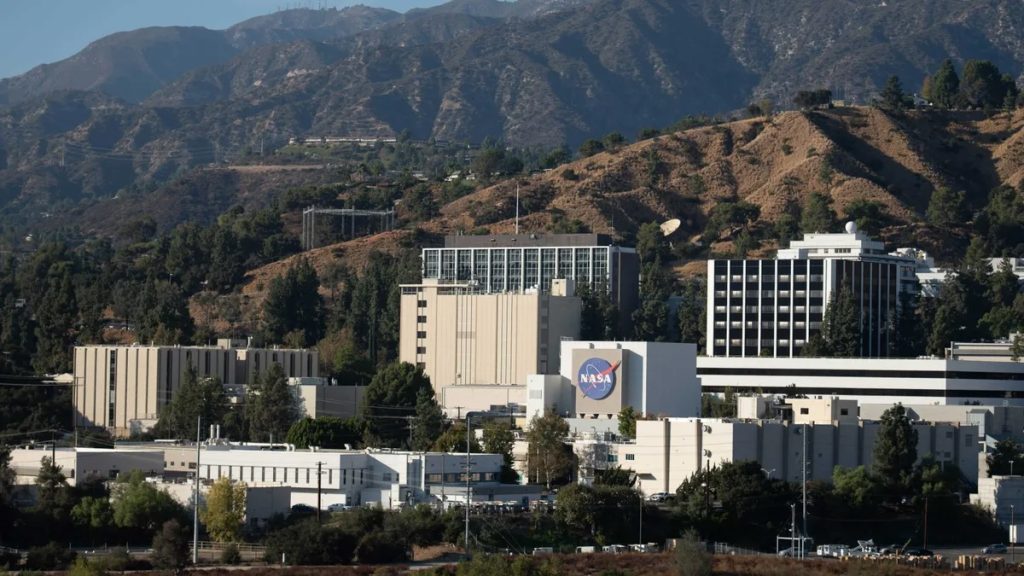
Prioritization of funding for the Pentagon and intelligence agencies decimates vital government agencies that are needed for functioning democracy
For the fifth time since October 2023, the federal government faced yet another shutdown, thanks to congressional squabbling over the federal budget. The government has been running on a series of Continuing Resolutions, which keep federal departments and agencies open at the previous fiscal year’s budget levels. But damage usually comes from that.
Whatever raise federal workers are granted has to come from somewhere, so the money is moved from elsewhere in the budget. Planned programs are put on the backburner, contracts are not renewed, and things tend to go “stale” until Congress gets its act together and passes a new budget that covers the entire October-to-September fiscal year.
Sometimes the damage to federal programs is clear. In February 2024, in the immediate aftermath of the passage of yet another Continuing Resolution, NASA announced that it would lay off eight percent of its workforce at the Jet Propulsion Laboratory. That’s about 530 people. And we’re not talking about janitors and secretaries. We’re talking about aerospace scientists. Another 40 contractors also were laid off. And to make matters even worse, the Mars Rover project was put on ice. There’s just no money for it.

Also in February, the Department of Homeland Security (DHS) announced that, because of the lack of a budget, it would have to transfer hundreds of employees from the Office of U.S. Citizenship and Immigration Services to DHS frontline services for new migrant arrivals. Are you an American citizen overseas who needs help from the U.S. Embassy? Tough luck.
Are you a green card holder who has waited years for U.S. citizenship? Enjoy a longer wait. And in the meantime, there just won’t be enough DHS employees to keep up the fight against fentanyl and other drugs at U.S. border crossings.
Perhaps one of the most egregious budget outrages, however, is happening at the National Archives and Records Administration (NARA). You may know the National Archives as the keeper of the Declaration of Independence, the Constitution, the Bill of Rights and other founding documents of our country.
But NARA is also the repository of billions of pages of classified documents needed by researchers and academics who request them through the Freedom of Information Act (FOIA). NARA oversees documents housed at the various presidential libraries and it’s supposed to be on the front line of document declassification.

NARA’s problem isn’t just that, like every other federal entity, it is subject to the limitations of a series of Continuing Resolutions. The real problem, at least for the rest of us, is that NARA is voluntarily asking for a smaller budget. You read that right. NARA’s leadership has asked Congress to actually cut its budget from $490.3 million to $481.1 million.
Why would any federal entity do such a thing? There’s no logical explanation. Let’s look at some numbers.
- NARA’s budget, when accounting for inflation, has not increased by a single dollar since 1991.
- A Freedom of Information Act (FOIA) backlog of 128 million pages exists at the George W. Bush Presidential Library. It will take NARA 622 years to process these FOIA requests at its current budget level.
- There is a current FOIA backlog of 12 years at NARA’s National Declassification Center.
- NARA does not possess the ability to participate in Secure Video Teleconferences (SVTC), necessary to resolve declassification disputes among national security agencies. It simply doesn’t have the technology.
- NARA is frequently unable to accept and preserve presidential records because they arrive at the agency in newer formats that are not compatible with NARA’s current computer systems, which have not been updated in 30 years.
The current situation is, of course, untenable. It’s also probably illegal because existing federal law says that FOIA requests must be answered within 20 days of filing. The current wait is 11 years. The National Security Archive, a private repository of declassified documents housed at George Washington University in Washington, DC, says that doubling the NARA budget would cost 0.005 percent of the federal budget. Most Pentagon offices don’t even bother to account for figures so small. Imagine how much a budget increase would help.

A doubling (or more) of NARA’s current budget is exactly what is needed. Additional money, according to the National Security Archive, would allow NARA to hire more staff, update its computer system, and as mandated in its Fiscal Years 2022-2026 Plan, digitize the first 500 million of 12 billion pages of documents the agency has promised to put online for scholars.

Don’t hold your breath, though. Congress and the White House are far more concerned about (and supportive of) ever-increasing budgets for the Pentagon and the Intelligence Community. Nobody cares about document access for scholars or even just for the average American who fills out a FOIA request.
Apparently even the Archivist of the United States, Colleen Joy Shogan, doesn’t care.
She’s a presidential appointee who hasn’t bothered to try to protect her own agency.
There have to be immediate and significant changes at NARA. The first one should be her firing.

CovertAction Magazine is made possible by subscriptions, orders and donations from readers like you.
Blow the Whistle on U.S. Imperialism
Click the whistle and donate
When you donate to CovertAction Magazine, you are supporting investigative journalism. Your contributions go directly to supporting the development, production, editing, and dissemination of the Magazine.
CovertAction Magazine does not receive corporate or government sponsorship. Yet, we hold a steadfast commitment to providing compensation for writers, editorial and technical support. Your support helps facilitate this compensation as well as increase the caliber of this work.
Please make a donation by clicking on the donate logo above and enter the amount and your credit or debit card information.
CovertAction Institute, Inc. (CAI) is a 501(c)(3) non-profit organization and your gift is tax-deductible for federal income purposes. CAI’s tax-exempt ID number is 87-2461683.
We sincerely thank you for your support.
Disclaimer: The contents of this article are the sole responsibility of the author(s). CovertAction Institute, Inc. (CAI), including its Board of Directors (BD), Editorial Board (EB), Advisory Board (AB), staff, volunteers and its projects (including CovertAction Magazine) are not responsible for any inaccurate or incorrect statement in this article. This article also does not necessarily represent the views the BD, the EB, the AB, staff, volunteers, or any members of its projects.
Differing viewpoints: CAM publishes articles with differing viewpoints in an effort to nurture vibrant debate and thoughtful critical analysis. Feel free to comment on the articles in the comment section and/or send your letters to the Editors, which we will publish in the Letters column.
Copyrighted Material: This web site may contain copyrighted material the use of which has not always been specifically authorized by the copyright owner. As a not-for-profit charitable organization incorporated in the State of New York, we are making such material available in an effort to advance the understanding of humanity’s problems and hopefully to help find solutions for those problems. We believe this constitutes a ‘fair use’ of any such copyrighted material as provided for in section 107 of the US Copyright Law. You can read more about ‘fair use’ and US Copyright Law at the Legal Information Institute of Cornell Law School.
Republishing: CovertAction Magazine (CAM) grants permission to cross-post CAM articles on not-for-profit community internet sites as long as the source is acknowledged together with a hyperlink to the original CovertAction Magazine article. Also, kindly let us know at info@CovertActionMagazine.com. For publication of CAM articles in print or other forms including commercial internet sites, contact: info@CovertActionMagazine.com.
By using this site, you agree to these terms above.
About the Author

John Kiriakou was a CIA analyst and case officer from 1990 to 2004.
In December 2007, John was the first U.S. government official to confirm that waterboarding was used to interrogate al-Qaeda prisoners, a practice he described as torture.
Kiriakou was a former senior investigator for the Senate Foreign Relations Committee and a former counter-terrorism consultant. While employed with the CIA, he was involved in critical counter-terrorism missions following the terrorist attacks of September 11, 2001, but refused to be trained in so-called “enhanced interrogation techniques,” nor did he ever authorize or engage in such crimes.
After leaving the CIA, Kiriakou appeared on ABC News in an interview with Brian Ross, during which he became the first former CIA officer to confirm the existence of the CIA’s torture program. Kiriakou’s interview revealed that this practice was not just the result of a few rogue agents, but was official U.S. policy approved at the highest levels of the government.
Kiriakou is the sole CIA agent to go to jail in connection with the U.S. torture program, despite the fact that he never tortured anyone. Rather, he blew the whistle on this horrific wrongdoing.
John can be reached at: jkiriakou@mac.com.



It appears that one reason why the National Archives reduced their voluntary budget was because in 2022 they spent 71 million dollars on Repairs and Maintenance which would not be necessary in the year 2023. This was explained on their web site with the
following comment:
NARA’s request for the Repairs and Restoration appropriation is a decrease of -$63.5 million
from the FY 2022 enacted level. This decrease is derived from non-recurring Congressionally
directed spending and non-recurring one-time costs associated with the 250th Anniversary of the
Founding of the United States.
According to this press release on January 24, 2024, some steps have been taken to reduce the backlog at the National Archives.
https://www.archives.gov/press/press-releases/2024/nr24-10#:~:text=A%20backlog%20of%20over%20600%2C000,to%20support%20additional%20work%20capacity.